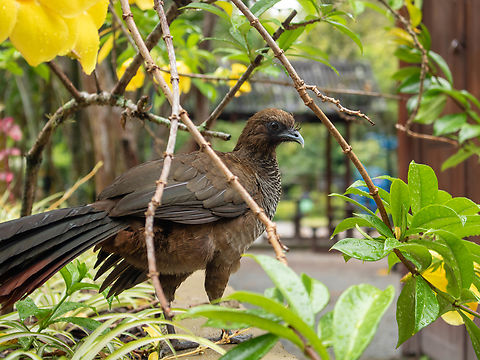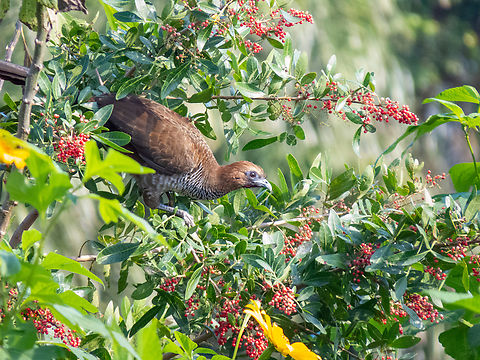
Appearance
The scaled chachalaca is about 50 cm long. One male weighed about 620 g and a female 498 g. Its plumage is mostly shades of brown, darker on the upperside. The breast is also dark brown with pale feather edges that give a scalloped or scaly effect. The belly is buffy and the vent chestnut. It has a small pinkish throat patch. The bare skin around the dark eye is slate gray.
Distribution
The scaled chachalaca is endemic to southeastern Brazil from southern São Paulo through Paraná and Santa Catarina into Rio Grande do Sul. It might also have occurred in southeastern Paraguay through the late 1800s.Status
The IUCN has assessed the scaled chachalaca as being of Least Concern. Though its population has not been quantified, it is at least locally common in several parts of its range. It does face hunting pressure and loss of habitat from deforestation.Habitat
It inhabits the edges of tropical evergreen forest and the interior and edges of "restinga" and "Laguncularia racemosa"-dominated mangrove stands. In elevation it ranges from sea level to 800 m.Reproduction
The scaled chachalaca's breeding season appears to span from October to February or March based on the dates of sightings of adults in breeding condition, eggs, and young. Its nest is a shallow bowl of twigs and leaves, typically placed in a concealed fork of a tree up to about 3 m above ground. The clutch size is three eggs.Food
The scaled chachalaca is usually seen in small family groups. Its diet is mostly fruits and leaves but it also visits feeding stations with bananas and suburban gardens.References:
Some text fragments are auto parsed from Wikipedia.